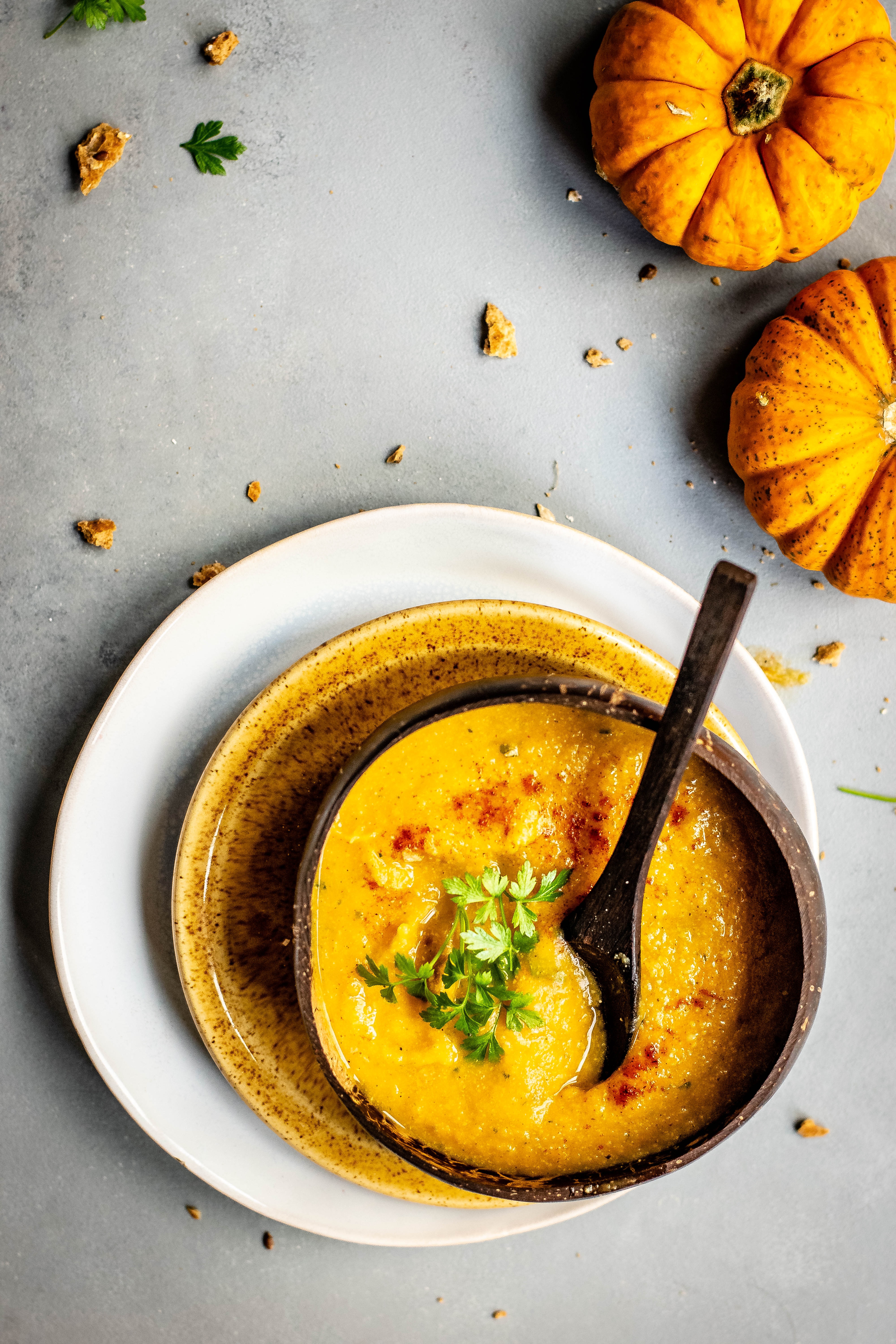
by Tanya Keam | May 2, 2023 | Acupuncture, Autoimmune, Bloating, Chinese medicine, Chronic fatigue, Client information, Digestive health, Health practitioner, Herbal remedies, IBS, Immune system, Inflammation, Loose stools, Nambour, Nourishing, Seasonal living, Sunshine coast
Digestive health in Chinese medicine is determined by the digestive symptoms we experience. The way food is prepared and cooked affects how we absorb nutrients. Our energy level, mood, body shape and muscle mass, flavour cravings, gyneocological problems and bowel movements tell us important information. Research is now suggesting a link between the gut-brain connection with conditions like Irritable Bowel Syndrome (IBS) (1) and the effects of our mental health and stress levels impacting our gut health. From a Chinese medicine point of view the way humans can overthink and worry in the mind, directly affects the digestion. Science is just now catching up with digestive health in Chinese medicine.
In Chinese medicine, a lot of emphasis is on the energetics of the spleen organ. What does the spleen do? Its job is to digest food, coagulate blood and metabolise fluid in the body. In other words, transform food and water into energy and then transport that energy around the body to make everything our body is made up of such as blood cells and muscle.
Because our core body temperate ranges from 35.9 to 37.2, the spleen does a much better job when cooked foods are eaten. Like our tummy is a nice warm cauldron. Having an icy cold smoothie, cold breakfast and cold water throughout the day make the spleen work harder by first using energy to warm up whats been ingested, then ‘transform and transport’. Going from a 19 degree fridge temperate (or even colder if you’re eating something frozen, to a 36.5 degree stomach temperature!) So its doing double the work! Symptoms that can arise are fatigue, bloating, excessive sweet cravings, soft and/or loose stools, poor muscle tone and deficiency of minerals and nutrients due to poor absorption.
It’s not to say every meal we have needs to be cooked. But a warm cooked breakfast such as eggs or oats, starts your day off well by keeping you fuller for longer (protein makes you feel fuller so daily eggs are a good option). Salads and raw fruit is still important to consume for vitamins and minerals but ease off on them in the cooler months, or have the salad at room temperature.
Cauldrons of soups, pots of fragrant teas, bowls of steaming rice and slow cooks stews are your best friend in the cooler months because no vitamins or minerals are lost in the cooking methods (like when steaming or blanching vegetables). Instead, all of the nutrients stay in the liquid. Warm meals keep us well and energised.
For people who cannot stomach food in the morning, this is due to the stress hormone cortisol being too high. Adrenaline kicks in when you wake up to get you going for the day because Cortisol is highest first thing in the morning. Often reaching for a coffee on an empty stomach stimulates adrenaline further and people live in this cycle of cortisol – adrenaline. If you have a job where getting up at 3.30am is your day, then you’re not going to be hungry because you’re body is suppose to be still asleep, but come 6-7am your stomach should be telling you to eat something by then. If you really do enjoy a morning coffee, aim for mid morning and have food with it so the caffeine isn’t triggering adrenaline and cortisol.
Ideally, waking up to hydrate with room temperature to warm water, then eat a warm breakfast between 7-9am is best for our digestive health in Chinese medicine theory. The spleen energy kicks in from 9-11am to do its T & T function. With daily exercise, daily bowel movements should be well formed and feel complete. If you need to wipe your bottom a lot or theres quite a lot of smell or mess in the toilet are you flush – your spleen is under-fuctioning like there is a “stickiness” in your stools. In Chinese medicine we call this dampness. Acupuncture and herbal medicine can quickly harmonise this. On the other hand if you’re bowels are irregular or sluggish then the body is absorbing waste back into the body – this can lead to liver problems and further bowel problems. Research has also shown that the warm therapeutic effect of moxibustion (burning compressed mugwort on or near a person’s skin) to help alleviate various conditions involving pain and discomfort, including IBS, showed moxibustion may also provide a benefit to IBS patients in 20 randomised-controlled trial results (2).
If you are suffering from digestive symptoms mentioned above or you believe you have poor digestion, have been diagnosed with inflammatory bowel, IBS or you’re aware stress and emotions are upsetting your stomach, please contact us today to discuss how we can help your digestive health at our Nambour Acupuncture clinic in the Sunshine Coast hinterland.
Hi, I’m T anya, an AHPRA registered Acupuncturist and health practitioner in Nambour in the Sunshine Coast hinterland, Queensland Australia. I practice Chinese medicine because its safe, logical, relevant and has effectively shown methods of natural wellness for thousands of years (read more about my training here). Life doesn’t need to be complicated and nor does the treatment approaches to get people feeling vibrant and well. I’ve seen people gain a lot from treatments, much more than just alleviating symptoms. It’s exciting to connect with people and share deep wisdom from the classics of ancient and traditional medicine, with modern protocols for todays mind-body living. See you in the clinic !
anya, an AHPRA registered Acupuncturist and health practitioner in Nambour in the Sunshine Coast hinterland, Queensland Australia. I practice Chinese medicine because its safe, logical, relevant and has effectively shown methods of natural wellness for thousands of years (read more about my training here). Life doesn’t need to be complicated and nor does the treatment approaches to get people feeling vibrant and well. I’ve seen people gain a lot from treatments, much more than just alleviating symptoms. It’s exciting to connect with people and share deep wisdom from the classics of ancient and traditional medicine, with modern protocols for todays mind-body living. See you in the clinic !
References:
- Harvard Health Publishing (2018). ‘The gut-brain: connection. At: ’https://www.ncbi.nlm.nih.gov/pmc/articles/PMC6111498/
- Mayo Clinic (2018). “Irritable Bowel Syndrome”. At: https://www.mayoclinic.org/diseases-conditions/irritable-bowel-syndrome/symptoms-causes/syc-20360016
- https://bmccomplementmedtherapies.biomedcentral.com/articles/10.1186/1472-6882-13-247#Sec7
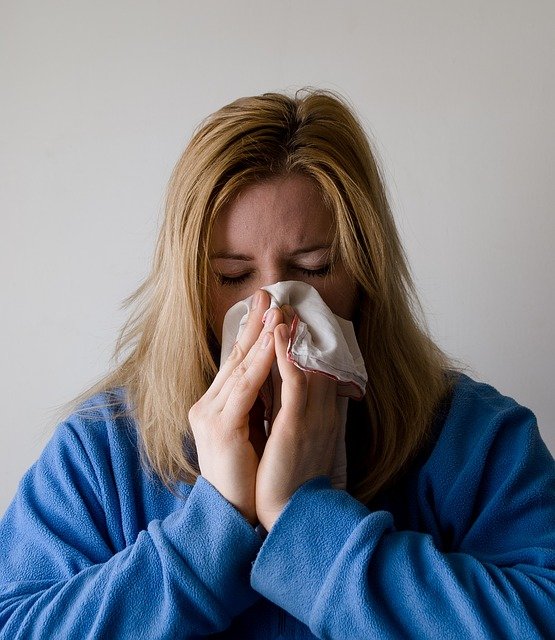
by Tanya Keam | Jan 14, 2022 | Acupuncture, Chinese medicine, Cough, covid19, Food, Immune Support, Immune system, Nambour, Nourishing, Seasonal living, Sunshine coast, Winter
Immune System treatment with Chinese Medicine
Immune system Chinese Medicine and Western medicine treatment approaches are quite different from each other.
When a virus enters the nose and throat, our immune system has receptors that tell the body there is an ‘invasion’, so the body sends helpers to ‘defend’ the body at the sight of infection, so we feel a sore throat come on for example. The immune system can often fight off an infection on its own, other times other invention may be needed.
The treatment for treating a common cold or flu from a western medicine perspective may include pharmaceutical use such as ibropofen to drop a fever, panadol for a headache, your doctor may advise rest and fluids to keep you hydrated. Elderly people are often given a flu shot in Autumn so they can build some antibodies to at least some of the inlfuenza variants in time for when Winter comes around and flu’s are more common.
The treatment for treating a common cold or flu or anything else viral from a Chinese medicine or eastern medicine perspective includes first understanding the onset. One person may come down with a sore throat and headache, another may feel lethargic, stuffy nose and feverish – even with the same variant of virus. The persons’ general health and medical history is also taken into account. For example if someone has chronic asthma but exercises regularly and eats a well balanced diet, compared to someone who is diabetic, obese and may be on multiple medications – they are completely different health status’s and their immune system response to a virus may be vastly different.
Herbal medicine is used at the first onset of symptoms for a virus which presents with flu symptoms and diagnosed usually with 3 seperate clinical presentations:
- Wind cold – runny nose, sneezing, some mucous congestion, fatigue, maybe a slight cough. There are no ‘hot’ symptoms and often happen if we just get caught in the rain or when the winds pick up in Autumn in the southern hemisphere.
- Wind heat – sore throat, swollen glands, headache, fever, achy muscles, lethargy, rapid heart rate and a yellow tongue coating. These are hot symptoms and often we catch this type of pathogen from someone else. Wind cold can sometimes turn into a wind heat pattern if the immune system has a hard time recovering. The mucous will go from clear to white to yellow to green and the fever etc kick in to further fight off the now hotter pathogen.
- Toxic heat and/or with phlegm – this type of condition is when wind heat isn’t resolved and a person gets more sick. They may end up with a lung infection with green or blood streaked sputum or have phlegm in their digestive system which leads to loose or sticky stools as well as lung phlegm that is hard to expectorate.
Depending on the persons constitution, herbal medicine is given as soon as symptoms come on. If you can get herbs into you within the first 12 hrs of a sore throat coming on (a wind heat pathogen for example), the herbs vent, disperse the expel the virus outwards preventing it from going deeper (aches, fever, then going to the chest then do not occur). As well as hydration, a healthy diet and rest. If however a pathogen lingers and nasty cough sticks arounds for weeks, a whole different approach is needed now as not only does the pathogen need to vent but the persons immune system needs some serious support!
Nutrition is a key part in anything cold/flu. Wind heat patterns already have so much heat in the body with fever, sore throats and aches going on we don’t want to add fire to fire so avoiding heating foods such as spicy, chocolate or coffee which create further heat is not recommended. But watermelon which is very cooling on the body also soothes a sore throat. Bonus! When a lot of mucous is present, it is not recommended to consume foods while sick that create more mucous in the body. These include dairy products and foods that have the texture of mashed avocado, peanut butter or bananas – they have ‘sticky’ consistency which is exactly what phlegm is. Whereas as a wind cold presentation would benefit from some spices such as chai tea which have dispersing and slightly warming qualities to balance out that cold invasion. it is a simple balance of cold balances hot, hot balances cold and avoiding those sticky ‘damp’ kind of phlegm foods when you have a chesty cough.
Traditional Chinese medicine consists of multiple facets to healing including acupuncture, cupping and gua sha therapy, massage, herbal medicine, exercise, nutrition and lifestyle recommendations to keep people well and as a way of preventative medicine. The lung energy is very much associated with the immune system so doing exercises that strengthen the lungs such as swimming, yoga, breath work and running build that lung capacity and ‘chi’ (energy). Someone who has Asthma would really benefit from swimming to strengthen the lungs and with the bonus of outside exercise you get Vitamin D too. Many minerals and vitamins found in our foods also support the immune system which is well researched, so eating a well balanced diet with lots of fruit and veggies is looking after you!
Allowing fevers to break on their own (without always reaching for the Ibuprofen) is a good sign your immune system is fighting off an infection. Further intervention is rarely needed when a fever gets high, but shouldn’t be disregarded either as a high fever can cause further illness. Getting a cold or flu every now and then is okay as well as your body creates antibodies to further protect itself for future attacks. Common herbs to strengthen the immune system in Chinese medicine are Huang Qi (Astragalus), Lingzhi (Reishi mushroom) and Bai zhu (Atractylodis Macrocephalae) which can be taken through the cold flu season to boost the immune system.
Here is a simple recipe to help a lingering cough!
If you’d like support in balancing your body and immune system Chinese medicine style then book in for a consult and treatment and we will get your system in great shape! You can book online or contact us at our Sunshine Coast Acupuncture and Chinese Medicine Clinic in Nambour on the beautiful Sunshine Coast.
 Hi, I’m Tanya, an AHPRA registered Acupuncturist, bodyworker and doctor of Chinese medicine in Nambour in the Sunshine Coast hinterland, Queensland Australia. I practice Chinese and natural medicine because its safe, logical, relevant and has effectively shown methods of natural wellness for thousands of years (read more about my training here). Life doesn’t need to be complicated and nor does the treatment approaches to get people feeling vibrant and well. I’ve seen people gain a lot from treatments, much more than just alleviating symptoms. It’s exciting to connect with people and share deep wisdom from the classics of ancient and traditional medicine, with modern protocols for todays mind-body living. See you in the clinic !
Hi, I’m Tanya, an AHPRA registered Acupuncturist, bodyworker and doctor of Chinese medicine in Nambour in the Sunshine Coast hinterland, Queensland Australia. I practice Chinese and natural medicine because its safe, logical, relevant and has effectively shown methods of natural wellness for thousands of years (read more about my training here). Life doesn’t need to be complicated and nor does the treatment approaches to get people feeling vibrant and well. I’ve seen people gain a lot from treatments, much more than just alleviating symptoms. It’s exciting to connect with people and share deep wisdom from the classics of ancient and traditional medicine, with modern protocols for todays mind-body living. See you in the clinic !
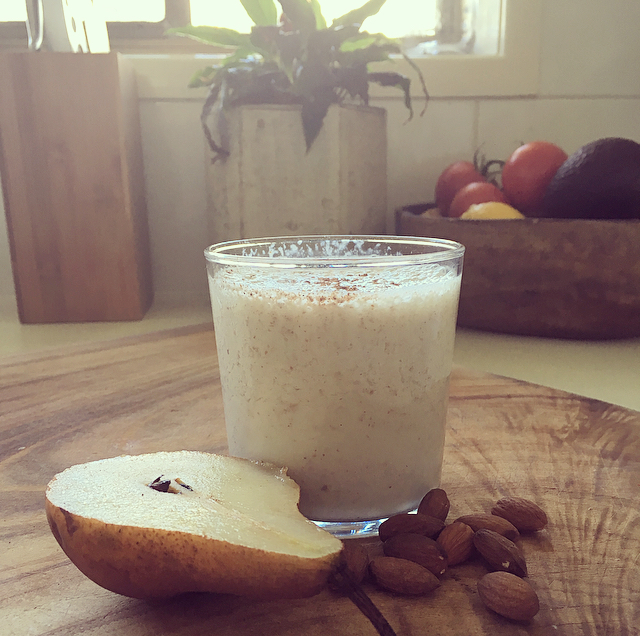
by Tanya Keam | Jun 11, 2018 | Acupuncture, Chinese medicine, Client information, Cough, Dairy alternatives, Dairy free, DIY Wellness Tips, Food, Herbal remedies, Homemade, Immune Support, Immune system, Nambour, Nutrition, Recipes, Seasonal living, Smoothie, Sunshine coast, Vegan, Vegetarian, Wellness, Winter
A simple Chinese Medicine cough recipe
Chinese medicine is seasonal medicine – what better way to take care of yourself than a cough recipe to look after you this season. In Winter it is recommended to consume less cold and raw food as it harsh on our digestive system to process, which is a balmy 36.5 degrees inside. Putting something the temperature of the fridge in a nice warm coldren stomach, first takes energy to warm it before it can digest it. This can lead to fatigue, bloating, and loose bowel movements.
In late Autumn and Winter we opt for:
- More warming foods such as soups and stews to warm us up from the inside!
- Smoothies are generally not recommended in Winter at all as they are too cold. However putting a wonderful twist on the conventional fruit smoothie so that is warming not only for our digestive system but designed to benefit the lungs and relieve coughs.
The main ingredient, pears, is highly valued in Chinese medicine as the fruit that is most beneficial for coughs. What does Autumn and Winter bring? You guessed it, coughs!
Pears are “sweet, slightly sour, and cool.” They “generate fluids” but also “dissolve phlegm,” so they are ideal for treating dry coughs, a hoarse voice, thirst and agitation in general.
Our second key ingredient is almonds which is also a great dairy alternative in smoothies. Almonds have similar properties to apricots in Chinese medicine, with apricot seeds being used as one of the key medicinals for treating coughs. Almonds are not as potent as apricot seeds (which have some mild toxicity and shouldn’t be consumed on a regular basis), but they do have some similar properties – moistening the lungs, relieving coughing and wheezing. That makes them the perfect complement to pears in this smoothie.
This recipe is specific for almond milk which helps resolve phlegm, so don’t switch it up for dairy milk as dairy is more phlegm forming.
Chinese Medicine Cough Recipe (Spiced Pear Smoothie with Almonds and Chia)
Serving size: About 1-2
Ideal for high speed blender
Ingredients
1 Pear (room temperature)
¾-1cup Almond Milk (how thick do you like it?)
10 natural Almonds (soaked overnight in water if possible, otherwise raw is fine)
¼-1/2 teaspoon Garam Masala spice
Dash Cayenne pepper or Cinnamon (to keep the digestive system warm)
1 tablespoon Chia Seed (can be soaked in almond milk prior for 15 minutes to turn into a jelly)
1-2 teaspoons Manuka honey
NO ICE !
Directions
Blend all ingredients until smooth. Enjoy!
Take care this Winter, there has already been many colds and influenza floating around.
 Hi, I’m Tanya, an Acupuncturist and Chinese medicine practitioner in Nambour on the Sunshine Coast, Queensland Australia. I practice Chinese medicine because its safe, logical, relevant and has effectively shown methods of natural wellness for thousands of years (read more about my training here). Life doesn’t need to be complicated and nor does the treatment approaches to get people feeling vibrant and well. I’ve seen people gain a lot from treatments, much more than just alleviating symptoms. It’s exciting to connect with people and share deep wisdom from the classics of ancient and traditional medicine, with modern protocols for todays mind-body living. See you in the clinic !
Hi, I’m Tanya, an Acupuncturist and Chinese medicine practitioner in Nambour on the Sunshine Coast, Queensland Australia. I practice Chinese medicine because its safe, logical, relevant and has effectively shown methods of natural wellness for thousands of years (read more about my training here). Life doesn’t need to be complicated and nor does the treatment approaches to get people feeling vibrant and well. I’ve seen people gain a lot from treatments, much more than just alleviating symptoms. It’s exciting to connect with people and share deep wisdom from the classics of ancient and traditional medicine, with modern protocols for todays mind-body living. See you in the clinic !
Contact me
Book online
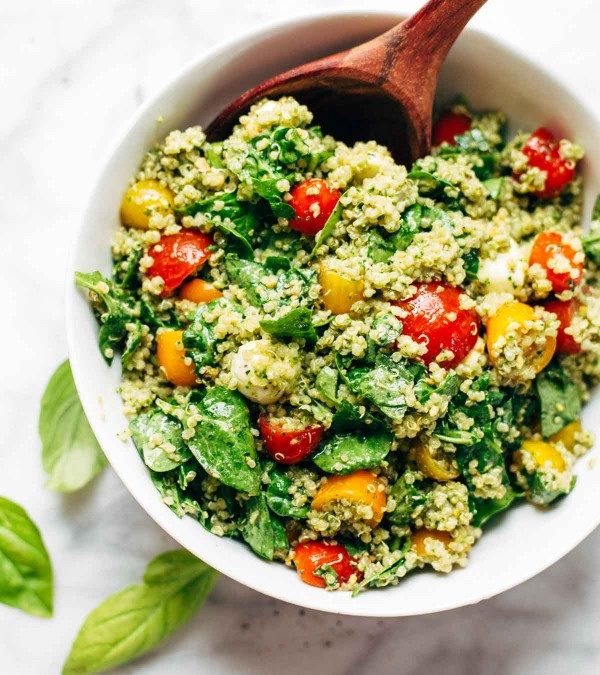
by Tanya Keam | Nov 30, 2016 | Acupuncture, Chinese medicine, fertility acupuncture, Homemade, Nambour, Nourishing, Nutrition, Recipes, Seasonal living, Sunshine coast, Vegetarian, Wellness
- 2 cups cooked quinoa (cooked with your choice of broth)
- 2 cups halved cherry tomatoes
- 2 cups spinach leaves
- ½ cup (or more, to taste) avocado coriander dressing
- Haloumi cheese (grilled) or Mozarrella, cut into bite sized pieces
- a few handfuls of crushed almonds or other nuts
- grilled veggies like asparagus or zucchini
- grilled chicken or another protein such as tofu
- half an avocado
- ¼ cup Greek yogurt
- ½ cup water (more as needed to adjust consistency)
- 1 cup coriander leaves and stems
- 1 small clove of garlic
- ½ teaspoon salt
- a squeeze of lime juice
Put together all ingredients in a bowl, chill dressing separately until ready to serve.
An easy and healthy meal to prepare for Summer gatherings.
Eat well, take care of you, see you in the clinic,
TK xx
Tanya Keam Wellness is an experienced health clinic in Nambour on the Sunshine Coast. Helping you to feel better in all aspects of your health and wellbeing.
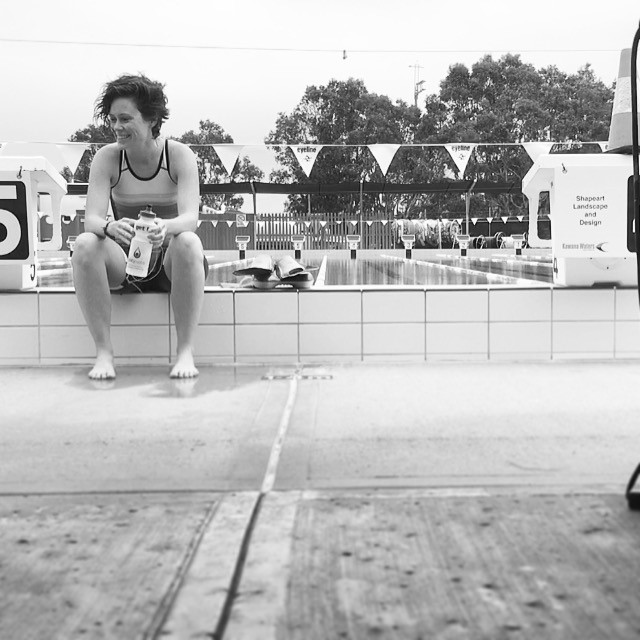
by Tanya Keam | Oct 24, 2016 | Acupuncture, Chinese medicine, Client information, Daily Rituals, DIY Wellness Tips, Exercise, Fitness, Immune Support, Liver Health, Mental health, Nambour, Nature, Nutrition, Seasonal living, Spring, Stress, Sunshine coast, Wellness
We live in one of the most fittest and healthiest places in Australia. We often have triathlon events, surfers at Noosa, runners on Alex hill, mountain climbers on Ngun Ngun, dog walking at Kawana and health cafes popping up everywhere. Who wants to stay inside on a sunny weekend? NO ONE!
Spring is the season of regeneration and growth and connects to the liver organ. The days become longer and we want to spend more time outside, especially living on the beautiful Sunshine Coast!
Here are some tips and strategies fitness wise and to support liver health:
From a Western medicine perspective, the liver is a very important organ that stores blood, produces bile, processes toxins and aids in our immune function.
From a Chinese medicine perspective, it also has a major influence on the smooth flow of energy (life force) to move throughout our bodies. When something blocks this energy flow such as lack of exercise, stress, pent up emotions or an unhealthy lifestyle; the liver becomes agitated/blocked/stuck, which can lead to symptoms such as irritability, insomnia, PMS, tight muscles, mood swings, digestive discomfort, pain in the body and headaches.
So what can you do to your liver energy/life force to flow smoothly in the face of every day activities?
Exercise: The best way to get your energy moving is to move! Different types of exercise suit different people. Some people do really well with vigorous exercise such as long runs or high intensity interval training (HIIT), while other people are more suited to slower, gentle forms of movement such as walking or yoga. I have personally found a mix of both types of exercise to be beneficial. If the gym is a bore, then find something you enjoy, it might even be a group fitness class where you can meet new people. This spring I’m into swimming, yoga, running and resistance exercises. Get those endorphins flowing !!!!
Diet: It is important to eat foods that will cleanse and improve overall liver function. Sour flavours belong to the liver/gallbladder function. Having a squeeze of lemon in warm water first thing in the morning invigorates the liver to get moving for the day and vinaigrette dressings can be added to salads. Leafy greens such as kale, lettuce, spinach and chard support liver detoxification pathways. Artichokes contain a flavonoid which is a strong antioxidant – meaning prevention and cleansing of free radical damage to cells. Try to reduce the amount of dairy, alcohol, greasy and deep fried foods, and excessive salt.
Manage stress – Stress plays a part in all of our lives, and a small amount is healthy, but its just how we manage it all that counts. Dealing with issues, conflict in relationships, pent up emotions, work situations etc. Seek professional support if needed but otherwise have a ‘self care’ approach to your day to day lives. Rest when you need to, have health treatments such as acupuncture or massage, exercise, take moments to be in nature and soak up some vitamin D, express how you feel, plan your day and week ahead.
It’s the little things that count. See you in the pool!
Take care,
TK x
Tanya Keam Wellness is an experienced health clinic in Nambour on the Sunshine Coast. Helping you to feel better in all aspects of your health and wellbeing.

by Tanya Keam | Oct 29, 2015 | Alkaline, Client information, Daily Rituals, DIY Wellness Tips, Emotions, Gynaecological, Liver Health, Menstrual cycle, Nourishing, Seasonal living, Spring, Stress
SPRING into Spring !
Spring is the season of growth and transformation. We come out of the hibernation of Winter and move forward with bursting flowers, warmer weather and longer days of sunlight. There is a sense of renewal and new life all around.
While Winter was a time to conserve energy and reduce activity, spring is a time of regeneration, new beginnings, and a renewal of spirit.

Spring is the ideal time for cleansing and rejuvenation for overall health and well-being, as well as corresponding to the “Wood” element, which in turn is conceptually related to the liver and gallbladder organs. According to the philosophy of Chinese medicine, the liver is responsible for the smooth flow of energy movement throughout the body. When the liver functions smoothly, physical and emotional activity throughout the body also runs smoothly. We even feel like doing more exercise and being outside!
Imbalances that can occur during Spring:
Feeling frustrated, irritable, anger outbursts
Insomnia, restless sleep
Temporal headaches, migraines
Depression
Abdominal discomfort
Alternating bowel motions
Lack of motivation
A feeling like there is a lump in the throat
Premenstrual symptoms
Irregular, painful periods
Bitter taste in the mouth
Stiff joints
Dry mouth and throat
Ringing in the ears
Sore red eyes, blurry vision
Seasonal acupuncture treatments a minimum four times a year can serve to regulate the inner organ systems and can correct minor annoyances before they become health problems. Acupuncture can help improve the overall health of your liver as well as treat stress, anger and frustration, which are often associated with liver disharmony.

Stretch – The liver controls the tendons. According to Chinese medicine, the liver stores blood during periods of rest and then releases it to the tendons in times of activity, maintaining tendon health and flexibility. Incorporate a morning stretch into your routine. Try a local yoga class!

Eye Exercises – The liver opens into the eyes. Although all the organs have some connection to the health of the eyes, the liver is connected to proper eye function. Remember to take breaks when looking at a computer monitor for extended periods of time and do eye exercises.
Eat Greens – Green is the colour of the liver and of spring time. Eating young plants – fresh, leafy greens, sprouts, and immature cereal grasses – can improve the liver’s overall function.
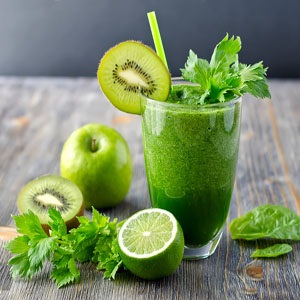
Taste Sour – Foods and drinks with sour tastes are thought to stimulate the liver’s movement. Put lemon slices in your drinking water, use vinegar and olive oil for your salad dressing. Garnish your sandwich with a slice of dill pickle.
Do more outdoor activities – Outside air helps energy to flow. If you have been feeling irritable or stuck, find an outdoor activity to smooth out that liver stagnation. Try bush walking or take up swimming.
Enjoy milk thistle tea
Milk thistle helps protect liver cells from incoming toxins and encourages the liver to cleanse itself of damaging substances, such as alcohol, medications, pesticides, environmental toxins, and even heavy metals such as mercury.
Take care of you, see you in the clinic,
TK xx
Tanya Keam Wellness is an experienced health clinic on the Sunshine Coast. Helping you to feel better in all aspects of your health and wellbeing.

by Tanya Keam | Jun 19, 2015 | Acupuncture, Body clock, Chinese medicine, Client information, Daily Rituals, DIY Wellness Tips, Mental health, Nambour, Seasonal living, Sleep, Stress, Sunshine coast
Traditional Chinese Medicine Time Cycles – Are you waking at 2am?
According to Traditional Chinese Medicine, the body cycles through twelve 2 hour cycles every day and night, during which each organ system becomes most active. So that for each particular organ system it has a high tide, such as 7-9am – Stomach time – why breakfast is so important !
The cycle can be regarded as running from 3am, when Liver time concludes and the body’s energies turn outward; in readying the body for the day by cleansing the lungs and the large intestine for the new day ahead. Then, from 3pm onward, the energies flow back in to restore and maintain the body during rest and sleep.
The organs and their peak functioning times are itemised below.
What does this mean? A example is when a patient is waking between 1 and 3am consistently, we can see that the Liver is showing an imbalance in its ability to function properly. Stress is a common factor that many people experience – demanding jobs, families to support, deadlines, worrying about the future, “living for the future” i.e. superannuation funds need contribution etc. Poor diet, excessive alcohol consumption, suppressing emotions can also create imbalance in the energy of the liver. Our deepest sleep should be at 2am!
Liver symptoms that can occur include headaches, premenstrual symptoms or irregular periods, tension shoulders, fullness in chest/ribs, dream disturbed sleep, quick tempered/irritable, outbursts, depression, moodiness, sighing, lack of motivation, poor day-to-day planning, irritable/irregular bowel movements, fever, red face and eyes.
Talk with your acupuncturist about the symptoms you are experiencing so a treatment can be tailored and the imbalanced corrected – all you have to do is maintain it!
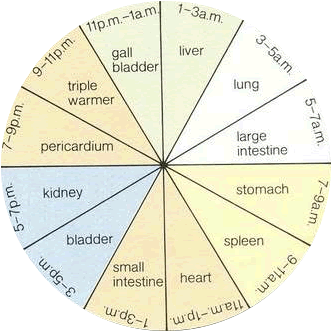
Organ Time Function
3:00 – 5:00 am – Lung – A new day!
The respiratory tract, lungs and sinuses are cleansed and maintained. Gentle breathing occurs and sleep becomes shallower in preparation for waking. Grief and sadness may be experienced at this time.
5:00 – 7:00 am – Large Intestine
The large intestine packs the stool for excretion ideally at 7 am so it is important to allow time for elimination in the early morning. Drinking water and avoiding caffeine during this time helps promote defecation. Guilt and defensiveness may occur at this time.
7:00 – 9:00 am – Stomach
The peak time of the day for digestion. For this reason TCM advocates having the main meal including protein at breakfast. The emotions of disgust and despair may be experienced at this time.
9:00 – 11:00 am – Spleen
Said to be the most important digestive organ in TCM, the Spleen directs the processes of digestion, transforming foods and liquid into energy and blood. The spleen also supports the immune system so allergies may be most pronounced at this time. This time window is good for thinking and working, although jealousy, worry and low self-esteem may also be experienced.
11:00 am – 1:00 pm – Heart
Palpitations may be noticed during this time and the majority of heart attacks are said to occur during the late morning. This is not a time to place the heart under additional stress by exercising or being exposed to excessive heat. A good time for meeting, talking and eating, although joy and sadness may also occur.
1:00 – 3:00 pm – Small Intestine
The small intestine is busy digesting lunch and this may be the time when symptoms such as indigestion, abdominal pain and bloating may occur. This time window is good for sorting and organising, although insecurity, vulnerability and abandonment may also be experienced.
3:00 – 5:00 pm – Bladder
The bladder is associated with the skin and skin irritations and eczema may be noticed during this time. Many people may feel tired and want a nap mid-afternoon and a salty snack such as a bowl of miso soup will strengthen this organ. Good for storing and reserving, although this time may be associated with timidity.
5:00 – 7:00 pm – Kidney
Tiredness may carry over from bladder time if the adrenals (endocrine glands produce a wide variety of hormones) are depleted (also governed by the kidneys). However, if the adrenals are strong, there may be a second wind of energy. Good for driving and consolidating, although fear and terror may reach a peak.
7:00 – 9:00 pm – Pericardium
The pericardium (a sac surrounding the heart) governs the master glands and reproductive organs. If depleted, low back pain may result arising from the kidneys. Good for socialising, flirting and sexual energy. Negative aspects include being unresponsive and unable to express emotions, feeling hurt, or extremes of joy.
9:00 – 11:00 pm – Temperature balance
The triple warmer (temp balance) governs the endocrine system and the blood vessels. Headaches or feeling tired and weak during this time may indicate significant arterial repair taking place. Good for relaxing, although may be associated with feelings of hopelessness, confusion, and paranoia.
11:00 pm – 1:00 am – Gall Bladder
The gallbladder is associated with regeneration and sleep which is why we are told that the hours before midnight are important! If restless during this time, this indicates that the gallbladder and liver are overwhelmed and the toxins remaining in circulation are acting as an irritant to the brain. Emotions associated with this time window include bitterness, resentment or indecisiveness.
1:00 – 3:00 am – Liver
The liver gets down to the work of processing the day’s nutrients and detoxifying the day’s toxin load. Deep resting and dreaming also occurs during this time and it is the worst time to eat as the small intestine is at its lowest ebb. Anger, frustration, rage reach a peak and waking at this time can often lead to overthinking things, writing lists of what needs doing for the day ahead and also difficulty falling back to sleep. The liver is about organisation! If this is your consistent waking time – start carrying a diary with you – write lists and get your organisation happening throughout the day and before bed time.
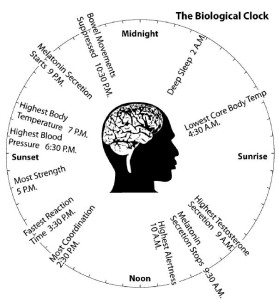
What can you do?
Acupuncture will treat the organs with an imbalance such as waking at 4am or fatigue at 11am for example – Talk with your acupuncturist about the symptoms you are experiencing so a treatment can be tailored and the imbalanced corrected – all you have to do is maintain it! It might be small nutritional changes, stress management ideas tailored to you.
Understanding that every organ has a repair/maintenance schedule to keep on a daily basis offers you the opportunity to learn how to treat yourself for improved health and well-being. It also allows you to identify exactly which organ system or emotion needs strengthening/resolving. Always use your symptoms and body cues as a guide, and if you make a connection above, such as that you get sleepy between 5-7pm, don’t hesitate to research what you can do to strengthen that organ (which would be the Kidneys). A great solution to deficient kidneys is having a sweet potato for breakfast!
Make sure to look at the emotional aspect too. If you’re sleepy during kidney time, do you have any fears holding you back from reaching your true potential? Are you afraid of rejection? Failure? Addressing this emotion will strengthening the organ and improve your physical health now and for the future 🙂
Take care of you, see you in the clinic,
TK xx
Tanya Keam Wellness is an experienced health clinic on the Sunshine Coast. Helping you to feel better in all aspects of your health and wellbeing.

by Tanya Keam | Jun 6, 2015 | Acupuncture, Buderim, Chinese medicine, Client information, Daily Rituals, DIY Wellness Tips, Mental health, Nature, Nourishing, Nutrition, Seasonal living, Sunshine coast, Winter
Chinese medicine gives us numerous mental, physical and nutritional tools to help us maintain balance all year round. There is much focus around the seasons of the year, where each of our organs are associated with each season. Winter is of the Kidneys and Bladder which rule water metabolism and maintaining homeostasis, a dynamic continual rebalancing. Winter is also the most ‘yin’ time of the year – yin is dark, cold, slow, with inward energy, compared to Summer which is light, hot, quick, with expansive qualities.
Some people feel quite energised by Winter, going snowboarding and being out in the chilly weather bush walking. While others retract, stay inside and can feel low in mood from the lack of light and physical activity.
Imbalances that can occur during the winter months include:
- Lower back pain – chronic or acute
- Knee pain and weakness
- Urinary retention or frequent urination
- Fatigue and shortness of breath
- Vertigo or dizziness
- Sexual problems – vaginal dryness, premature ejaculation, low libido
- Anxiety, low mood and excessive fear
- High blood pressure and/or headaches
- Inflexibility and resistance to change
Foods that are beneficial during the Winter months include:
Root vegetables, winter greens, mushroom, apple, pear, potato, squash, citrus fruits, kidney bean, black sesame seed, dark leafy greens, chicken, lamb, tempeh, whole grains, miso, unrefined sea salt, bone broths (organic).
Chinese medicine dietetic philosophy suggests that we embrace native foods, locally grown, and organic and/or chemical free where possible. Take time to sit down and enjoy your meal.
Tips to stay well this Winter:
- Take time to listen to your body and recharge
- Eat warming foods such as lamb and root vegetable stew, tempeh with leafy greens, miso soup or a kidney bean dish
- Keep hydrated with neutral temperature water and warming teas
- Keep warm – especially the upper back, neck and lower back
- Practice self acceptance – acknowledge emotions (such as fear), reflect, judge yourself less so that you can move forward (Spring is followed by Winter – the season that bursts with life)
- Don’t be afraid of your darker side – write things down in a journal without analysing
- Receive acupuncture to support the Kidneys and Bladder and maintain wellness
Exercise wise, we all do less during the cooler months as it is a time to rest and revitalise our kidneys, which is why some animals hibernate. Nature is at rest, and in this rest replenishes itself.
By eating well, regular exercise, paying attention to our bodies and harmonising ourselves to the seasons, we can stay healthier and prevent illness. Once we feel good and are maintaining a level of wellness that we all strive for, it allows us to enjoy the cooler months, whether its indoors or hitting the waves (with a wetsuit!). Thus, Winter is the perfect time to look inward, reflect on ourselves, practice writing or other practices such as yoga, pilates or tai chi.
Take care of you, see you in the clinic,
TK xx
Tanya Keam Wellness is an experienced health clinic on the Sunshine Coast. Helping you to feel better in all aspects of your health and wellbeing.
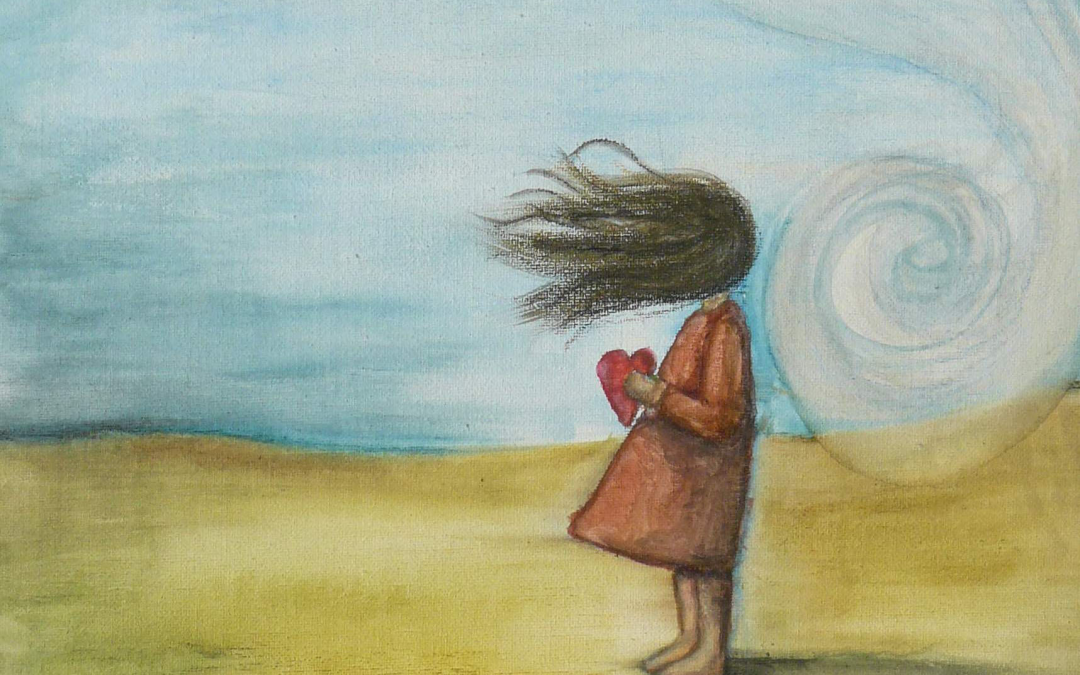
by Tanya Keam | Mar 2, 2015 | Acupuncture, Autumn, Buderim, Chinese medicine, Client information, Daily Rituals, DIY Wellness Tips, Immune Support, Nourishing, Nutrition, Seasonal living, Sunshine coast
Autumn
Autumn is the season that follows the long and hot days of summer, where the days become shorter, the nights a little cooler, presenting us with earthy coloured falling leaves to prepare for the coming winter. With the change in temperature, especially the summer humidity that we experience in Queensland Australia, the air signals us to start putting away the summer frocks and get out warmer jackets and scarfs. We also begin to harvest and gather brightly coloured foods of the new season, such as pumpkin and squash.
Chinese medicine is very much focussed around the seasons of the year. We go from the relaxed and carefree attitudes of Summer to the more serious and introspective energies of Autumn. In Autumn we move from the external, expansive nature of Summer to the internal, contracting nature of Autumn. It is a good idea to finish up projects you’ve started in spring and summer and frolic in the rewards, a bit like the planting of seedlings in the veggie patch that have been harvested.
In Chinese medicine, Autumn is associated with the lungs and colon. The energy of the lungs are colon are about “letting go”, in all aspects of our life so that we can make room for new experiences that will help us to learn and grow.

Imbalances that can occur during Autumn can include :
Dry skin, lips and throat
Stiff upper back and neck
Allergies, allergic rhinitis and sinusitis
Weak immunity
Sneezing and running rose
Lack of vitality
Itching
Dry or phlegmy cough
Constipation
Asthma
Skin conditions flare up, such as eczema
Sitting with sadness/grief for longer
Tips for staying well during Autumn :
Practice breathing exercises
Let go of negativity in your life
Walk outside
Reorganise, clean and declutter
Recognise sadness/grief
Brush your skin with a dry soft brush
Acupuncture and cupping are helpful to prevent illness (colds and flu that are common in autumn) and to assist your body to recover quickly
Wear a scarf and jacket to protect your neck and back from the wind
Nutrition is a large part of Chinese medicine – to eat seasonally.
Foods that are beneficial in Autumn:
Garlic, Sweet potato, Ginger, Onion, Cabbage, Rice, Cinnamon, Cardamon, Leek, Miso, Navy beans, Almonds, Asparagus, Walnuts, Pear, Olives, Cauliflower, Yoghurt, Apples, Celery, Broccoli, Apricot, Sourdough, Sauerkraut, Cloves, Squash, Pumpkin
The best way to stay well according to Chinese medicine, is to learn about the nature of each season and to live in harmony with its spirit. If we are living in harmony with the world around us, the Autumn around us, we see that nature is a powerful system of slowing down and contracting, preparing to rest, so its good for us to mimic this. Sleeping a little longer, eating less cold foods and instead more warming and nourishing foods, like stews and soups, and paying extra attention to our internal lives. The time of the lungs and colon is about self worth, to give ourselves some extra attention and self love.
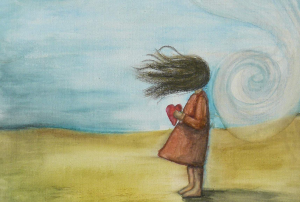
Perhaps that yoga class you’ve been meaning to get to for months can now fit into your schedule.
To breathe
To nurture
To let go.
Take care of you, see you in the clinic,
TK xx
Learn more > http://www.tanyakeamwellness.com
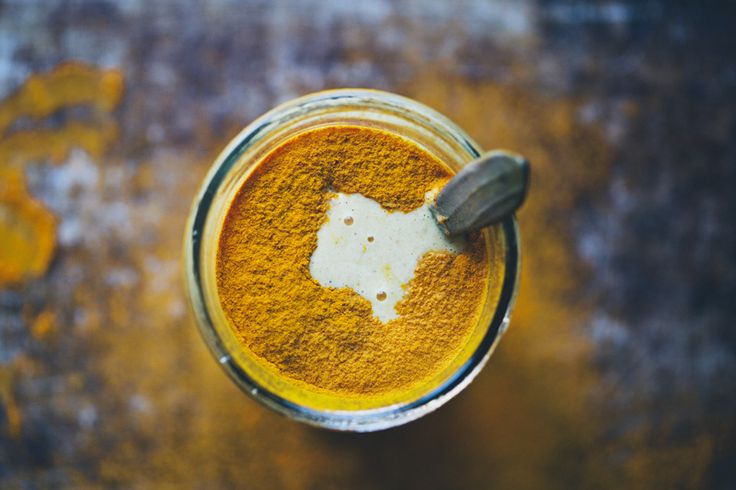
by Tanya Keam | Feb 4, 2015 | Autumn, Chinese medicine, Client information, DIY Wellness Tips, Food, Herbal remedies, Homemade, Immune Support, Immune system, Liver Health, Nourishing, Nutrition, Recipes, Seasonal living, Sunshine coast, Wellness, Winter
Immune Boosting Tumeric Lassi
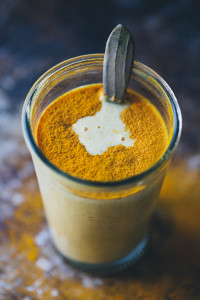
The Benefits of Tumeric
1. Otherwise known as Circuma longa, is a member of the ginger family, Zingaberaceae.
2. A wonderful aspect on the liver. Spring (and late winter) is an important time to consume herbs and foods that strengthen the liver, because spring is the season which rules the liver and gallbladder in Traditional Chinese Medicine. It is said to shrink engorged hepatic ducts, so it can be useful to treat liver conditions such as hepatitis, cirrhosis, and jaundice.
2. Highly valuable for the influence it exerts on the digestive system and the liver. In both Ayurvedic and Traditional Chinese Medicine, it is considered a digestive bitter and a carminative. It can be incorporated into foods, including rice and bean dishes, to improve digestion and reduce gas and bloating. It is a cholagogue, stimulating bile production in the liver and encouraging excretion of bile via the gallbladder. This improves the body’s ability to digest fats.
3. Recommended for chronic digestive weakness and/or congestion. It can be taken as a single extract or in the form of digestive bitters, which combine turmeric with other bitter and carminative herbs. Take either of these twenty minutes before meals, especially meals that are high in protein and/or fat. It is beneficial for people who feel tired after consuming meals or who experience gas and bloating.
4. Anti-inflammatory to the mucous membranes, which coat the throat, lungs, stomach and intestines. Turmeric decreases congestion and inflammation from stagnant mucous membranes. People with the following conditions could benefit from regular use of turmeric: IBS (Irritable Bowel Syndrome), colitis, Crohn’s disease, diarrhea, and post-giardia or post salmonella conditions. It can also reduce the itching and inflammation that accompanies hemorrhoids and anal fissures.
5. Useful to follow up antibiotic treatments, in addition to acidophilus and garlic. It helps to improve the intestinal flora and acts as an anti-bacterial.
6. Turmeric can also benefit skin conditions including: eczema, psoriasis and acne, for it is a potent detoxifier.
7. Turmeric is an antispasmodic to smooth muscles so it reduces digestive and menstrual cramping.
Try adding turmeric to your oatmeal, grains and beans, or take digestive bitters. Whatever way that turmeric is consumed it will benefit both the digestive system and the liver.
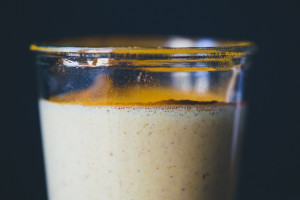
2 large or 4 small glasses
2 cups organic yogurt with active live culture, or dairy or nut milk
2 bananas
2 tsp freshly grated ginger
2 tsp honey, preferably raw (unpasteurized)
1/2 lemon, juice
2 tsp rosehip powder (optional but delicious, and a good C-vitamin boost)
1 tsp vanilla extract or ground vanilla
3-4 tsp ground turmeric (or fresh turmeric root)
Place all ingredients in a blender and mix on high speed until smooth. Add more yogurt if you prefer. Pour the lassi in two large glasses. For a more stunning presentation, dust 1 tsp ground turmeric on top before serving. Add a straw and serve.
Eat well, drink well, take care of you, see you in the clinic,
TK xx
Learn more > http://www.tanyakeamwellness.com

 anya, an AHPRA registered Acupuncturist and health practitioner in Nambour in the Sunshine Coast hinterland, Queensland Australia. I practice Chinese medicine because its safe, logical, relevant and has effectively shown methods of natural wellness for thousands of years (read more about my training here). Life doesn’t need to be complicated and nor does the treatment approaches to get people feeling vibrant and well. I’ve seen people gain a lot from treatments, much more than just alleviating symptoms. It’s exciting to connect with people and share deep wisdom from the classics of ancient and traditional medicine, with modern protocols for todays mind-body living. See you in the clinic !
anya, an AHPRA registered Acupuncturist and health practitioner in Nambour in the Sunshine Coast hinterland, Queensland Australia. I practice Chinese medicine because its safe, logical, relevant and has effectively shown methods of natural wellness for thousands of years (read more about my training here). Life doesn’t need to be complicated and nor does the treatment approaches to get people feeling vibrant and well. I’ve seen people gain a lot from treatments, much more than just alleviating symptoms. It’s exciting to connect with people and share deep wisdom from the classics of ancient and traditional medicine, with modern protocols for todays mind-body living. See you in the clinic ! 



















